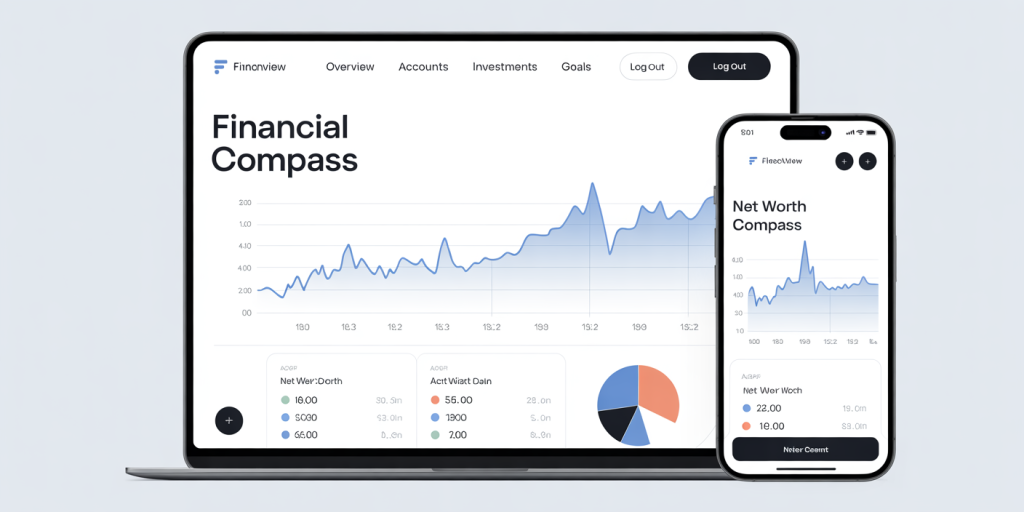Tracking your net worth is an essential practice for anyone interested in improving their financial health. It provides a clear snapshot of your financial standing by balancing assets against liabilities, reflecting not only your current situation but also long-term financial progress. Monitoring net worth over time allows individuals to measure wealth growth, adjust financial goals, and make informed investment decisions. Thanks to technological advancements, numerous digital tools are now available to help automate and simplify this process.
In this article, we explore some of the best tools to track your net worth, diving into their distinct features, usability, and suitability for different types of users. By understanding the options available, readers can select the best platform tailored to their personal financial management style.
—
Why Tracking Net Worth Matters for Wealth Management
Tracking net worth is more than a monthly ritual or an end-of-year task; it is a cornerstone of effective financial management. Net worth reflects your financial position by subtracting liabilities (debts) from assets (cash, investments, property, etc.). Seeing this number evolve over time allows you to assess whether your financial strategies are effective.
A real-world example involves Sarah, a mid-30s professional from Austin, Texas. She started tracking her net worth using a simple spreadsheet but switched to a net worth tracking app after two years. Within five years, her net worth tripled, primarily because she could quickly identify which investments were underperforming and cut unnecessary expenses. This underscores how consistent monitoring can reveal financial trends and enable faster, smarter adjustments.
Data from a 2023 report by CNBC reveals that individuals who regularly track their finances are 30% more likely to achieve their savings goals. Thus, integrating a reliable net worth tracking tool amplifies one’s potential for financial success over time.

—
Key Features to Look for in Net Worth Tracking Tools
When choosing a tool to monitor your net worth, specific features significantly affect the experience and accuracy of your financial portrait. Below are critical aspects to consider.
Security and Data Privacy: Since these tools connect to bank accounts and other financial institutions, robust encryption and privacy policies are non-negotiable. Look for platforms with multi-factor authentication (MFA) and a history of data protection.
Ease of Use and Accessibility: A user-friendly interface and mobile access make it easier for users to update data frequently. Automatic syncing with financial accounts reduces manual input, minimizing errors and time investment.
Customization and Detailed Reporting: The ability to categorize assets and liabilities in ways that reflect your unique financial situation enhances utility. Advanced platforms offer detailed reports including net worth trends, asset allocation breakdowns, and net worth projections.
Cost vs. Value: Free tools may suffice for basic tracking, but premium platforms often provide superior analytics or concierge services that justify their price.
—
Top Net Worth Tracking Tools Reviewed
1. Personal Capital
Widely renowned for its comprehensive financial dashboard, Personal Capital stands out as a robust net worth tracker. It aggregates assets and liabilities from various accounts, including checking, retirement, mortgage, and investment portfolios. The real-time visualization dashboard provides monthly net worth graphs and detailed asset allocations.

A practical case involves Mark, a 45-year-old investor who noted Personal Capital’s retirement planner helped adjust his portfolio to delay retirement by only three years instead of five. The automatic fee analyzer helped Mark reduce hidden fund fees, improving his portfolio’s net return by 1.2% annually.
*Pricing:* Personal Capital offers a free net worth tracking tool with optional advisory services that start from 0.89% of assets under management.
2. Mint by Intuit
Mint is an accessible, free app designed for budgeting that features net worth calculation as a secondary function. It imports bank, credit card, loan, and investment data, then aggregates the information into net worth summaries.
Mint’s strength lies in expense tracking, allowing users to analyze spending patterns alongside net worth changes. For instance, Jessica, a recent college graduate, avoided accumulating credit card debt by using Mint’s alerts, indirectly helping stabilize her net worth during her career launch.
*Pricing:* Free with ads; a premium ad-free version will launch soon.
3. YNAB (You Need A Budget)
Though YNAB primarily focuses on budgeting, many users leverage it to track net worth via customizable reports. The manual asset/liability input encourages active money management by engaging users more deeply with their financial standing.
A notable example is Tom, a freelancer, who uses YNAB’s goal setting features alongside net worth tracking to manage irregular income and prioritize debt repayment. His net worth improved by 25% within one year thanks to disciplined budgeting integrated with net worth monitoring.
*Pricing:* Subscription at $14.99 per month or $98.99 annually, with a 34-day free trial.
4. Kubera
Kubera is a premium net worth tracker especially popular among high-net-worth individuals and expatriates because of its global asset tracking capabilities. It supports stocks, bonds, crypto assets, real estate, and even collectibles. Kubera also connects with most global banks, which is ideal for users with international finances.

A real case is Elena, an entrepreneur with assets across three countries, who attributes Kubera for helping her streamline tax preparations and investment decisions. The platform’s sleek UI and multi-currency support provide a clear, harmonized net worth view.
*Pricing:* $150 per year after a 7-day free trial.
—
Comparative Table of Best Net Worth Tracking Tools
| Feature | Personal Capital | Mint | YNAB | Kubera |
|---|---|---|---|---|
| Target User | Investors, Retirees | General Budgeters | Budget-conscious Users | High-net-worth, Global |
| Asset Types Supported | Bank, Loans, Retirement, Investments | Bank, Credit, Loans | Manual Input | Bank, Crypto, Real Estate, Collectibles |
| Cost | Free (Advisory Paid) | Free | Paid Subscription | Paid Subscription |
| Mobile App | Yes | Yes | Yes | Yes |
| Automatic Sync | Yes | Yes | Partial (manual input) | Yes |
| Security | MFA, Encryption | Encryption | Encryption | Bank-level Security |
| Reporting | Detailed | Basic | Budget-focused | Advanced Net Worth & Trends |
| Multi-currency Support | Limited | Limited | Limited | Yes |
—
Practical Tips for Maximizing Net Worth Tracking
Using a net worth tracker is only half the battle; consistent input and strategic adjustments complete the cycle. Here are some tips to maximize the benefits:
1. Update Regularly: Aim to update at least monthly. Personal Capital and Mint automate syncing, but manual checks ensure accuracy, especially for assets like real estate or collectibles.
2. Include All Assets and Liabilities: Some users overlook minor debts or valuable assets. For instance, ignoring a small car loan can skew the net worth picture, while forgetting investment properties can lead to underestimation.
3. Set Financial Milestones: Use the trend data to set realistic targets. For example, increase your net worth by 10% annually or eliminate one major liability per year.
4. Review and Adjust Goals: Use insights from tools to adjust investment allocations, debt repayment plans, and savings strategies, mirroring how Mark and Elena optimized their portfolios.
—
The Future of Net Worth Tracking: Integrating AI and Personalized Finance
Looking forward, net worth tracking tools are poised to become even more intelligent and user-centric. Artificial intelligence (AI) is already starting to analyze spending habits and investment performance, providing predictive insights and personalized advice.
Emerging trends suggest platforms will soon offer features like automatic rebalancing recommendations based on life events, taxation strategies optimized for net worth growth, and even integration with non-traditional assets such as NFTs and decentralized finance (DeFi) holdings.
For example, companies like Wealthfront and Betterment are blending robo-advisory services with net worth tracking, offering users a seamless path from monitoring to directly enhancing their wealth.
Furthermore, privacy advancements such as zero-knowledge proofs could allow data synchronization that maintains absolute confidentiality without compromising user experience.

Deixe um comentário